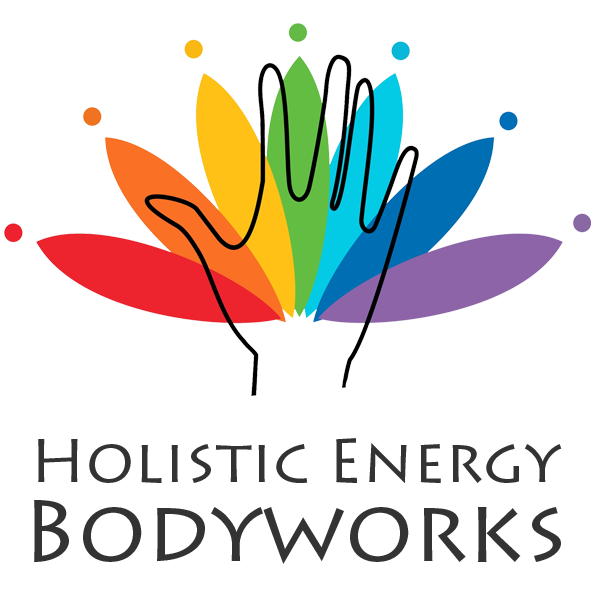Addiction Energy Healing by Holistic Energy Bodyworks
Transform your journey to recovery with Addiction Energy Healing at Holistic Bodyworks.
Embrace a holistic approach that nurtures the mind, body, and soul empowering you to break free from addiction.
Understanding the Role of Holistic Energy Healing in Addiction Recovery
Addiction is a complex condition that profoundly affects individuals and their loved ones. It is characterized by compulsive behavior related to a substance or activity, despite harmful consequences. Many people struggling with addiction feel trapped in a cycle that is difficult to escape on their own.
Traditional approaches to treating addiction often focus on the physical aspects and can sometimes overlook emotional and spiritual healing. This is where holistic energy healing comes into play, providing a comprehensive approach that addresses not only the symptoms of addiction but also the underlying emotional and spiritual issues. With modalities such as acupressure, Reiki, and Rolfing, holistic energy healing can facilitate recovery by fostering balance and promoting a deeper connection to oneself.
Medical Definition of Addiction
From a medical standpoint, addiction is classified as a chronic and relapsing disorder characterized by compulsive drug seeking, continued use despite harmful consequences, and long-lasting changes in the brain. The National Institute on Drug Abuse (NIDA) defines addiction as a neurobiological disorder influenced by genetic, environmental, and developmental factors. Individuals with addiction often experience alterations in brain function and structure, particularly in areas that regulate judgment, decision making, learning, memory, and behavior control. This complexity makes addiction challenging to treat, as it can manifest in various ways and varies from person to person.
Examples of Types of Addiction
- Substance Addiction: This involves the dependence on substances such as alcohol, prescription medications, or illicit drugs. Individuals may develop a strong craving for these substances, resulting in a compulsion to use them despite negative consequences. Substance addiction can lead to severe physical and psychological health issues, impacting various aspects of life including relationships, work, and overall well-being.
- Behavioral Addiction: Unlike substance addiction, behavioral addiction involves compulsive engagement in activities such as gambling, shopping, or internet use. These behaviors can lead to significant distress and dysfunction, affecting an individual’s ability to fulfill responsibilities and maintain healthy relationships. The dopamine rush associated with these activities can create a repeating cycle of desire, engagement, and negative consequences.
- Food Addiction: This type of addiction is characterized by an unhealthy relationship with food, leading to compulsive eating or binge eating. Individuals may struggle with the psychological aspects of food, turning to it as a way to cope with stress or emotional pain. Food addiction can manifest itself through a lack of control over eating habits and can have significant health implications such as obesity and eating disorders.
- Sexual Addiction: This involves compulsive engagement in sexual behaviors, to the point where it interferes with daily life and personal relationships. Individuals may seek sexual experiences in unhealthy ways, often leading to emotional distress and relationship dysfunction. Often rooted in deeper emotional issues, sexual addiction can cause significant harm if left unaddressed.
How the Traditional Medical and Recovery Community Treats Addiction
The traditional medical and recovery community typically approaches addiction through a combination of medical intervention and therapeutic support. Treatments often begin with detoxification, where individuals undergo a medically supervised withdrawal from substances, aimed at managing symptoms and ensuring safety. Following detox, many individuals participate in counseling or behavioral therapies,
such as Cognitive Behavioral Therapy (CBT) or Motivational Interviewing. These therapies help identify triggers and develop coping strategies to manage cravings and prevent relapse. Support groups like Alcoholics Anonymous (AA) or Narcotics Anonymous (NA) also play a significant role in recovery, providing a community for individuals to share experiences and build social support. Medication may also be prescribed, particularly for substance use disorders, to help manage withdrawal symptoms or cravings, creating a dual approach of psychological support combined with medical intervention.
List of Drugs Often Prescribed for Addiction and Their Side Effects
- Methadone: Commonly used for opioid addiction, methadone helps ease withdrawal symptoms but can also lead to dependency and side effects such as drowsiness, constipation, and potential respiratory issues.
- Buprenorphine: This medication is used to treat opioid dependence and helps reduce cravings. While effective, it can have side effects such as headaches, nausea, and anxiety, and poses a risk of dependency itself.
- Naltrexone: Often used for both opioid and alcohol addiction, naltrexone blocks the effects of opioids and can help reduce cravings. Side effects can include nausea, headaches, and liver function changes.
- Acamprosate: This medication is utilized in alcohol dependency, helping to restore the balance of neurotransmitters in the brain. Side effects may include diarrhea, nausea, and anxiety.
- Disulfiram: This is used for alcohol addiction and creates an adverse reaction when alcohol is consumed, reinforcing abstinence. Side effects can include skin rash, headache, and, in severe cases, liver damage.
How Energy Healing Contributes to Overcoming Addiction
Energy healing offers an alternative and complementary approach to overcoming addiction, focusing on restoring balance and facilitating the release of emotional blockages. Acupressure, for instance, utilizes pressure points on the body to encourage the flow of energy and alleviate withdrawal symptoms. By relaxing the nervous system and reducing stress, acupressure can help individuals manage cravings and promote a sense of calm, making it easier to navigate the challenges of recovery.
- Reiki is another effective energy healing modality that can facilitate addiction recovery. This practice involves the practitioner channeling universal life force energy to the recipient, promoting deep relaxation and emotional healing. Through Reiki, individuals can release pent-up emotions and trauma that may have contributed to their addiction, helping to create a more harmonious mental state. This relaxation and emotional release can empower individuals to cope better with the challenges of recovery, fostering resilience and hope.
- Rolfing, a form of bodywork that focuses on realigning the body’s structure, can also be instrumental in overcoming addiction. By promoting body awareness and releasing physical tension, Rolfing helps individuals connect more deeply with their physical selves. This connection can be particularly important for those in recovery, as it supports the process of grounding oneself and staying present. As individuals engage in Rolfing, they often find that they can release emotional blockages associated with past traumas, enabling them to move forward more positively.
Energy healing modalities not only address the physical aspects of addiction but also recognize the role that emotional and spiritual wellness plays in recovery. By promoting holistic healing, these practices empower individuals to reclaim their lives and develop healthier coping mechanisms for managing stress and emotional pain. Your Holistic Bodyworks Practitioner will create a custom energy healing strategy for your exact needs.
What Can Happen if Addiction Is Not Treated
Failing to address addiction can lead to a multitude of serious consequences that affect almost every aspect of an individual's life. One of the most immediate risks is the deterioration of physical health. Continued substance abuse can cause irreversible damage to organs, leading to chronic health issues such as liver disease, heart problems, and infectious diseases like hepatitis and HIV due to risky behaviors associated with drug use.
Psychologically, untreated addiction can exacerbate mental health conditions such as anxiety and depression. The cycle of addiction can create a downward spiral, where individuals may turn to substances to cope with worsening mental health, leading to greater dependency and increased isolation from support systems. This isolation can strain relationships with family and friends, resulting in emotional pain and further compounding the addiction.
Socially, untreated addiction often leads to a loss of employment and financial instability. As individuals prioritize their substance use over responsibilities, their work performance may suffer, resulting in job loss and professional setbacks. This, in turn, can lead to increased stress and feelings of worthlessness, reinforcing the cycle of addiction.
Ultimately, untreated addiction can have dire consequences, including accidental overdose or even death. The complexity of addiction makes it critical to seek help and support early on to avoid these risks and to promote healing and recovery.
Summary
In conclusion, addiction is a multifaceted condition that requires a comprehensive approach to treatment. Traditional methods often provide necessary medical and psychological support, but they may not address the emotional and spiritual dimensions of addiction. Holistic energy healing modalities such as acupressure, Reiki, and Rolfing can play a vital role in recovery, promoting balance, emotional healing, and a deeper connection to oneself. By engaging in these practices, individuals can empower themselves on their journey toward sobriety, reclaiming their lives and fostering resilience against future challenges.
Contact Holistic Energy Bodyworks Practitioners for a Free Consultation on Overcoming Addition
If you or someone you know is struggling with addiction, we invite you to reach out to Holistic Energy Bodyworks for a free consultation. Our experienced practitioners are dedicated to supporting your healing journey through personalized energy healing modalities tailored to your individual needs.
Together, we can explore how energy healing can complement your recovery process, helping you to heal physically, emotionally, and spiritually. Don't wait to take the next step towards a healthier, brighter future – contact us today!
Additional References
USA
110-11 Queens Boulevard, Apt. 9K
Forest Hills
New York, NY 11375
+1 (347) 870-3471
SPAIN
Vía Laietana 54 — 2º, Puerta 205
Barcelona, 08003 SPAIN
and
Colldeplana s/n
Lluçà, Barcelona, 08514 SPAIN
Tel. +34 679 22 97 44
ISRAEL
Balfour 48 3/11
Tel Aviv
Tel +972 52-831-9766
WORLDWIDE
Holistic Energy Bodyworks Practitioners can connect, and provide healing services and consultations through Zoom.
Please contact us to learn more.





